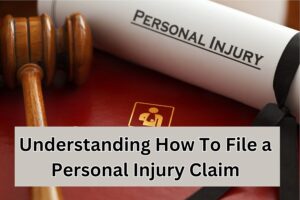What To Ask A Syracuse DWI Lawyer When Hiring For Your Case

Finding the right attorney is all about asking the right questions. If you have recently been arrested for driving while intoxicated (DWI) in Syracuse, this article can help you find a suitable legal professional such as the DWI Guys. You need to find a lawyer immediately as the criminal justice system moves quickly.
Most lawyers are willing to give a free initial consultation. During this time, you can ask questions and communicate the facts and details about your case. This is where you can get the information you need to find the best DWI lawyer.
Here, we will list essential questions you can ask your would-be attorney. You can select the best questions that you think can help you make an informed decision.
Pre-Meeting
Initially, you have to contact a DWI attorney and set up a meeting. There are three goals during this appointment. First, you need to learn more about the background and experience of the attorney. Second, you need to discuss your case, as well as possible options and strategies. Finally, you need to determine whether you want the said lawyer to represent you or not.
Before you meet with the attorney, it is best to be prepared. You can bring your court documentation, police report, bail papers, and other important paperwork regarding the DWI case.
Questions To Ask Your Potential Syracuse DWI Lawyer
There are multiple vital questions you have to ask to help you decide the best lawyer for your case. In this section, we will be dividing these questions into various categories, allowing you to gain more understanding not only about your would-be attorney, but also what to expect during the legal process.
Background and Experience
You need to know the background and experience of the DWI lawyer you would potentially hire. The following questions can help you learn more about a lawyer’s capabilities:
- Which law school did you go to? You graduated at what year?
- Are you a member of any professional organizations or bar associations? Can you be more specific on which of these organizations you are a member of?
- When did you start representing clients faced with DWI charges?
- How many, on average, of your cases each year relates to DWI charges?
- What’s a DWI case you have taken in that challenged you? What did you do to overcome these challenges?
Assessment Of Your Case
Before DWI lawyers can provide you with an assessment of your case, they need to get multiple information regarding it. It is best to listen to the lawyer’s questions and answer them with as much information as possible. You can also elicit suggestions from your attorney by asking the following:
- Which factors can we take advantage of that will work in my favor?
- Which factors should we be careful with and will work against my interests?
- Do you suggest a guilty plea? Is it possible to get a plea agreement?
- Is going to trial the best option?
- What happens during the different stages of the entire legal process?
- What can I expect during the arraignment?
- What happens during filing of motions?
- How about during the motions hearing?
- What can I expect during disposition and trial?
Management Of Your Case
Case management refers to how the lawyers will handle your case. You need to have an understanding of the logistics and processes to know what to expect. The questions you can ask regarding case management include the following:
- Who will work on my case? Will you work on my case? Will other people work on my case? If so, who are they?
- Will you personally be the one to represent me? If not, who will be representing me in court?
- Who do I contact or communicate with if I have questions?
- Which method of communication do you prefer?
- How quickly do you respond?
- Will you be updating me regularly? What information would you update me with and at what frequency?
Financial Costs
Of course, you have to know more about the costs associated with your case, as this can be an important determining factor for selecting a lawyer. Possible questions include the following:
- Do I get charged with a flat fee or billed by the hour?
- What is covered and what is not included in your rate?
- Are there other case-related expenses I have to know? Can you possibly give me estimates?
- What are the various payment options?
In Conclusion
Getting charged with a DWI can be very troubling. You need the right legal representation to be wary of the expenses associated with your case. In addition, a good lawyer can help you reduce your charges to a minimum. The questions included above can help you find the best lawyer that fits your needs. Remember to list down these questions and bring them to your meeting with the attorney.






